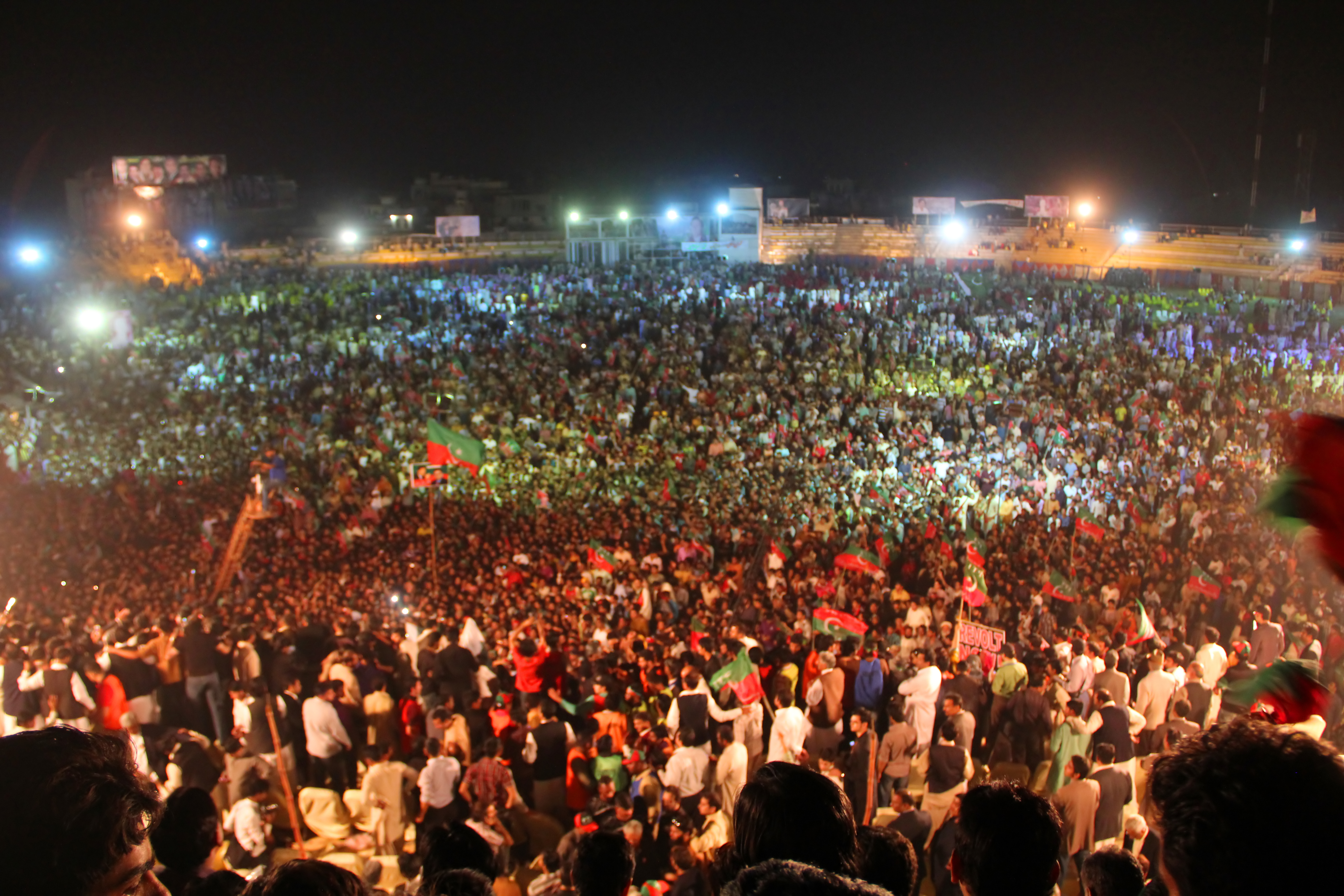Assigning blame for the dysfunction gripping Pakistan’s political system today is easy. This mess belongs to everyone. Imran Khan’s bombastic but mostly hollow leadership style certainly deserves a large share of the blame. But so does the opposition, which refused to play a constructive role in governing from day one. Instead, it spent four years actively undermining the ruling party. And finally, hiding behind the curtain is the military, which has always been the masked ringleader of this circus.
Instead of letting the democratic process run its course, the military threw its support behind Khan to get him into office. And now that it has soured on him, it has quietly thrown its support behind his ouster. As usual, Pakistan’s generals have been the invisible hand shaping things behind the scenes. Whether one supports Imran Khan, or the opposition is irrelevant. The point is that none of today’s drama would be possible without the military’s poorly disguised machinations.
Pakistan’s outwardly democratic system will always be weak and unstable so long as its leaders can only attain or keep power with the military’s support. Its hybrid system in which the military wields political power alongside elected civilians is therefore at the root of this latest crisis, just as it has been the root cause of nearly all the crises that have paralyzed Pakistan since its birth. It is an inherently fragile system that will always prevent the nation from reaching its true potential by trapping it in a constant cycle of dysfunction and poor governance.
Democracy certainly has its flaws but, when fairly implemented as part of a system that prioritizes the rule of law and freedom of expression, has proven to be the form of government most likely to lead to greater economic, technological, and military power. By subordinating its civilian political institutions to their will, Pakistan’s generals have pursued their short-term political interests without considering the long-term impact.
Unfortunately, since they rule from the shadows, they avoid any meaningful responsibility or blame. Instead, they have foisted that upon hapless civilian leaders while simultaneously making it impossible for them to govern effectively. The result is that Pakistan’s economy and people suffer while its generals get their pick of the best plots in their various real estate development schemes.
Though all the players deserve some blame, ultimate responsibility for this crisis falls on the system itself. That means the military deserves the lion’s share of the blame because it is both the primary architect and stakeholder of this system. But just as they avoided taking the fall for Pakistan’s four stinging military defeats at India’s hand, Pakistan’s generals will inexplicably emerge more powerful and ready to steer the nation towards its next crisis. For all its volatility, the very nature of the system they created makes that tragically inevitable.
The author writes about the politics and national security of Pakistan and the wider Muslim world on his blog, www.mirrorsfortheprince.com.

Many Sunni Muslim states are also hybrids like that of Pakistan’s; with the armed forces constituting the core of the state and the Western-inspired pseudo-democratic system, its facade. Egypt, Algeria, Bangladesh, and Indonesia come to mind. In fact, until Erdogan’s reforms in Turkey, that country also conformed to the same pattern.
It might be useful to think of constitutional structures that could formalize such arrangements. (There is historical example of successful military states: the Mamluks of Egypt, the Hospitalers, and the Templars.). The empirical fact is that the further one moves away from the those states that have roots in Catholicism and Roman Empire, the more difficult it has been to devise a system of representative government with the Rule of Law.
As for specific case of Pakistan, she is a new country. At her birth, she had no inherited infrastructure that she could build upon, unlike much of post-colonial Africa or the former constituent republics of USSR. When Jinah moved to Karachi, he rented someone’s private residence to establish a “government house”. Everything in Pakistan has had to be built from scratch, including nascent national consensus on domestic and foreign policy.
A working Pakistan is a task for centuries.
Yes, completely agree. Most Muslim states, particularly the Arab/Sunni ones have been ruled by military dictatorships in one form or another for far too long.
It doesn’t seem that you understand Pakistan, which like any other large populous nation, is far more complex than you can ever imagine with its ethnic, linguistic, and social diversity. Pakistan’s military is strong but it is not all-powerful. At least three times in history, military governments in Pakistan were overthrown by mass movements. That’s because Pakistanis have never accepted curbs on freedoms of political expression. For whatever period military dictators lasted, it was mostly by consent of the majority for whom the alternative, corrupt elite calling for democracy, were unacceptable. Pakistan’s biggest problem it not its military, it is small cadre of corrupt political families and mafias which won’t allow true democracy to function. Imran Khan has actually changed all that. Just yesterday there more a million people on the streets! No military can ever oppose or confront such street power. Pakistan is one nation that cannot be subdued for long.
Your linking of Catholicism with democracy is just laughable. For much of last century, South America, which is overwhelmingly Catholic, was under dictatorships.
Syyed
There is no nation in Pakistan. There are 5 ethnolingustic groups vying for power, chief among them the Muslim Punjabis.
Imran Khan, a rigid Sunni Pshtun recalling Kerbala and Imam Hussein, when Shia cannot do the same without danger to themselves, is just vile.
The red flags were covering Lahore when Zulfaqar Ali was elected. Yet the military murdered him.
South A.erica proves my point, it lacked the influence of the Roman Empire.